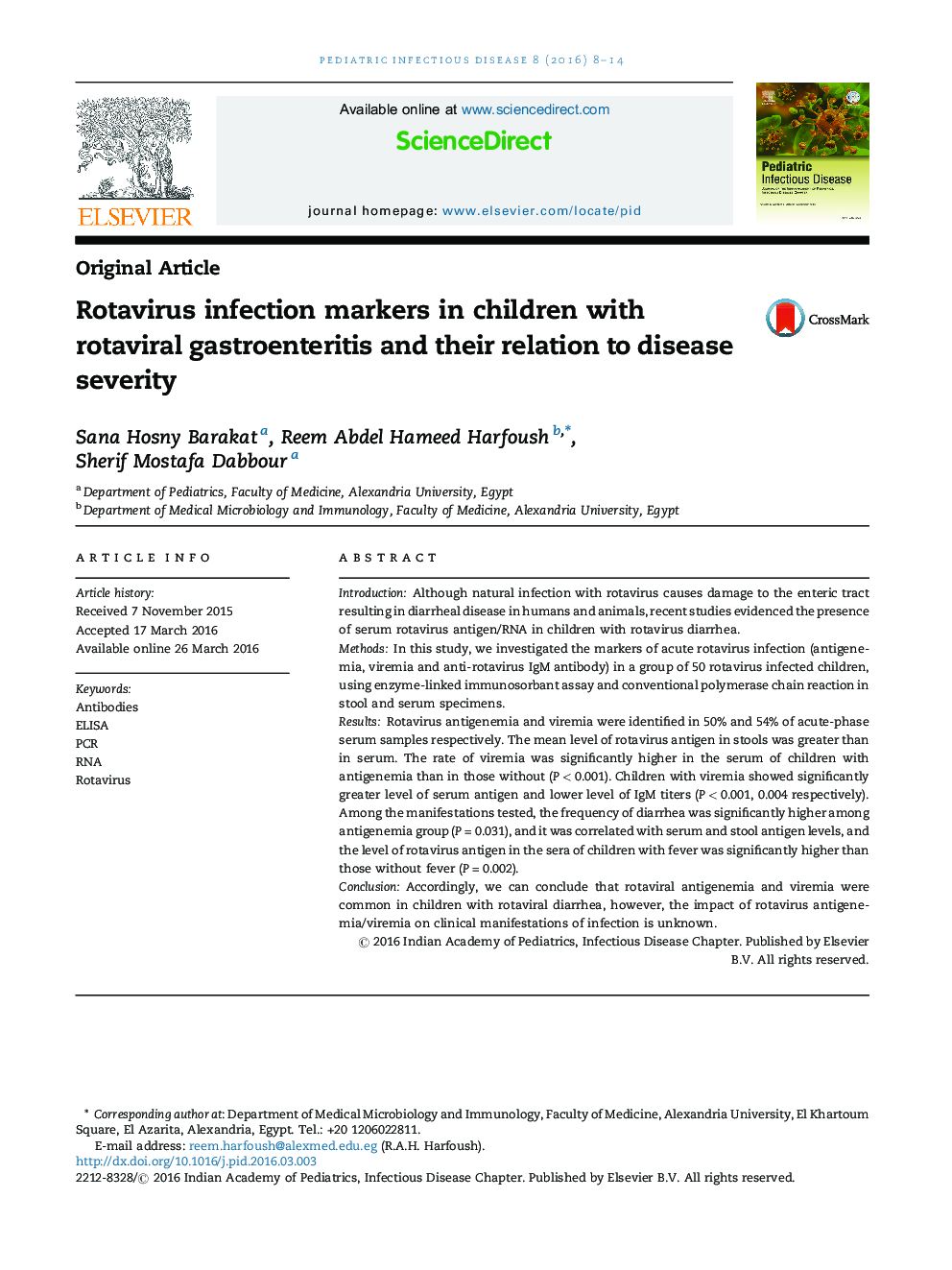| Article ID | Journal | Published Year | Pages | File Type |
|---|---|---|---|---|
| 3382257 | Pediatric Infectious Disease | 2016 | 7 Pages |
IntroductionAlthough natural infection with rotavirus causes damage to the enteric tract resulting in diarrheal disease in humans and animals, recent studies evidenced the presence of serum rotavirus antigen/RNA in children with rotavirus diarrhea.MethodsIn this study, we investigated the markers of acute rotavirus infection (antigenemia, viremia and anti-rotavirus IgM antibody) in a group of 50 rotavirus infected children, using enzyme-linked immunosorbant assay and conventional polymerase chain reaction in stool and serum specimens.ResultsRotavirus antigenemia and viremia were identified in 50% and 54% of acute-phase serum samples respectively. The mean level of rotavirus antigen in stools was greater than in serum. The rate of viremia was significantly higher in the serum of children with antigenemia than in those without (P < 0.001). Children with viremia showed significantly greater level of serum antigen and lower level of IgM titers (P < 0.001, 0.004 respectively). Among the manifestations tested, the frequency of diarrhea was significantly higher among antigenemia group (P = 0.031), and it was correlated with serum and stool antigen levels, and the level of rotavirus antigen in the sera of children with fever was significantly higher than those without fever (P = 0.002).ConclusionAccordingly, we can conclude that rotaviral antigenemia and viremia were common in children with rotaviral diarrhea, however, the impact of rotavirus antigenemia/viremia on clinical manifestations of infection is unknown.
